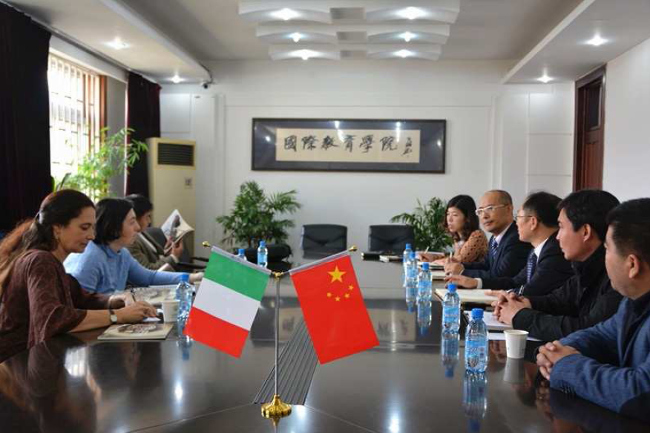LESS ITALIAN UNIVERSITY. UP ALIENS. ALBANIA AND CHINA IN THE HEAD
Since 2003 (the year of the all-time high of 338 000) to 2012 (with 270 thousand) graduates in Italy fell by 20% but to enroll more students in our universities are foreign citizens: over 7300 universities in ALMALAUREA in 2013 compared to 2200 in 2005. More than two-thirds of graduates migrants come from Albania – which alone accounts for 16% – Romania, China, Cameroon, Greece, Germany, Ukraine, Moldova, Poland, France, Russia and other European countries.
To choose our universities are the young people who come from Albania (16%), China (9%), Romania (8%). Many also from Africa (13%) and the Americas (10%). The proportion of foreign graduates is clearly growing: in 2001 when it was 1.2% in the 20013 came to 3.2%. There are always children born in Italy, almost all Chinese graduates in our universities comes only after completing high school (89%) while 53% of Romanians and 42% of Albanians who have reached the milestone of studies, arrived before earning the title of the secondary school level.
Graduates with foreign citizenship are entitled to enroll in language, in medicine, economics and architecture. Few who choose the profile literary (2%), psychological (1.5%) or legal (1.5%). Most decide to spend a few years of university in Perugia (28.7%) followed by Bolzano (14.3%) and Turin (12.1%). Only 0.9% instead attended the University of the South.
We are dealing with kids “good” or at least from families that have the ability to keep a child abroad: the family background of origin of these young people is even higher than that of the Italians. 42 foreign graduates out of 100 have at least one parent graduated while this percentage is reduced to 27 for the Italians. A final aspect that is worth to point out is the key research work. Young foreigners are more willing than Italians to move abroad for work is a Europe (61% versus 46%) and in one of the non-European (48% versus 36%).
Going to look better data it turns out that Romanians and Albanians tend to look for a job in Italy while the Chinese and the children of other European countries are willing to let the “boot”. It is, however, a small consolation to have an increase in graduates with foreign citizenship as compared to other countries, Italy is a center of attraction relatively weak and has an incidence of foreign students by about half compared to the OECD.





